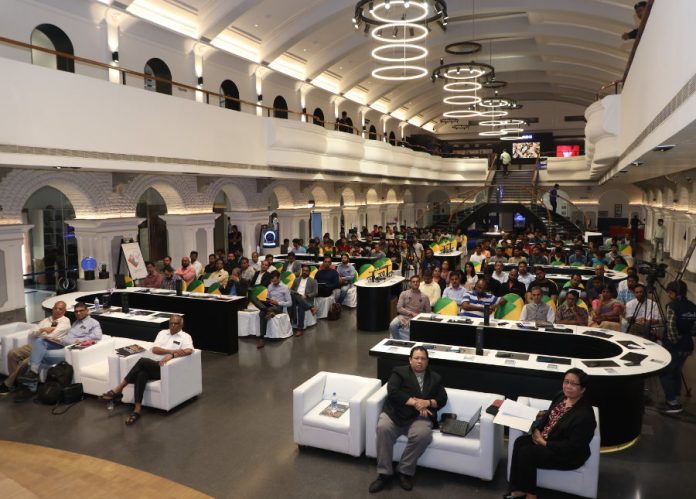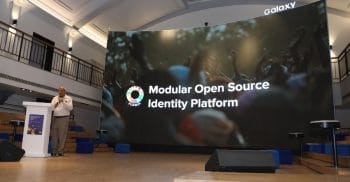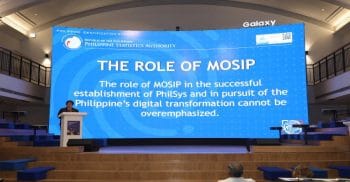In order to mark the release of MOSIP 1.0, the foundational identity project “Modular Open Source Identity Platform” (https://mosip.io) organised the “MOSIP Open Source Day” on February 14th at the Samsung Opera House in Bangalore. The day marked a significant milestone in what has been an eventful journey and a profound learning experience of close to 2 years with many contributors contributing to code, tests, documentation and interaction with experts and organisations around the world.
MOSIP was conceived as a response to the challenges facing countries that have tried to adopt large scale digital identity platforms for better delivery of services. MOSIP is a technology platform which helps Governments and other user organizations implement a digital, foundational identity system. Nations can use MOSIP freely to build their own identity systems. Being modular in its architecture, MOSIP provides flexibility to countries in how they implement and configure their systems, and helps avoid vendor lock-in. The open source approach makes it possible for MOSIP to become the go-to digital ID platform for development and review by experts from around the world, particularly in the incorporation of state of the art security and privacy technologies. The code is available in its entirety at https://github.com/mosip under the Mozilla Public License 2.0.
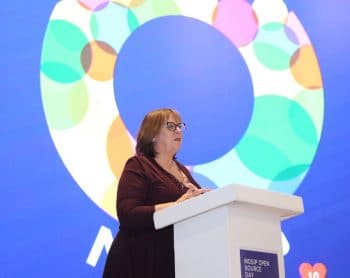
Anchored at the International Institute of Information Technology, Bangalore (IIIT-B) as a global digital public good, and funded by the Bill & Melinda Gates Foundation, Omidyar Network and Tata Trusts, MOSIP presents a different way of approaching the architecture, design and integration of large-scale systems, one that recognises foundational ID as being a strategic asset of a country. It focuses on one thing — a means to empower every resident with a unique identity, which they can use to authenticate themselves.
On Open Source Day, the Keynote Speech was given by Dame Wendy Hall, (DBE, FRS, FREng) who is Regius Professor of Computer Science at the University of Southampton, UK. Dame Wendy, with Sir Tim Berners-Lee and Sir Nigel Shadbolt co-founded the Web Science Research Initiative in 2006 and is the Executive Director of the Web Science Trust. She was also co-Chair of the UK government’s AI Review, which was published in October 2017, and has recently been announced by the UK government as the first Skills Champion for AI in the UK.
Dame Wendy spoke about the geopolitics of data governance and the internet, and the diverging directions taken by the United States, Europe, China and Russia. She highlighted the importance of approaches taken in India with respect to digital governance, as people begin to come online in rural China, rural India, and in Africa. Projects such as MOSIP could be a force for good, and not for harm, in this scenario, as long as it realises the responsibilities it bears.
Our second guest, Ms. Edith Orcilla of the Philippine Statistics Authority, shared her experiences and progress in the building of the Philippine Identification System, or PhilSys. She discussed the approach and thinking that had led the Government of Philippines to use an open system such as MOSIP, and the technological and governance choices of the project so far.
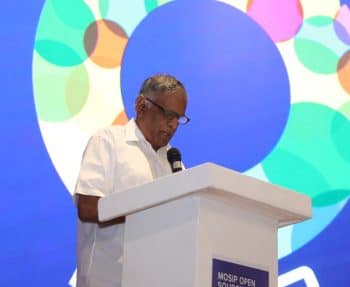
From the MOSIP team, Prof. Rajagopalan, Faculty Coordinator for MOSIP talked about how MOSIP came to be built, the technological approaches of the project and the learnings it has had so far. Puneet Joshi from the team shared highlights from the Platform’s Roadmap. There was also a Q&A session convened by Prof. Rajagopalan and Ramesh Narayanan from the team.
The evening ended on a special note as the project thanked and felicitated over 30 contributors who had made incredibly valuable contributions to the development of the platform.
The event was live-streamed and the video can be viewed on the MOSIP website (https://www.mosip.io/news-events/watch-the-livestream-open-source-day-february-14-2020)
































































